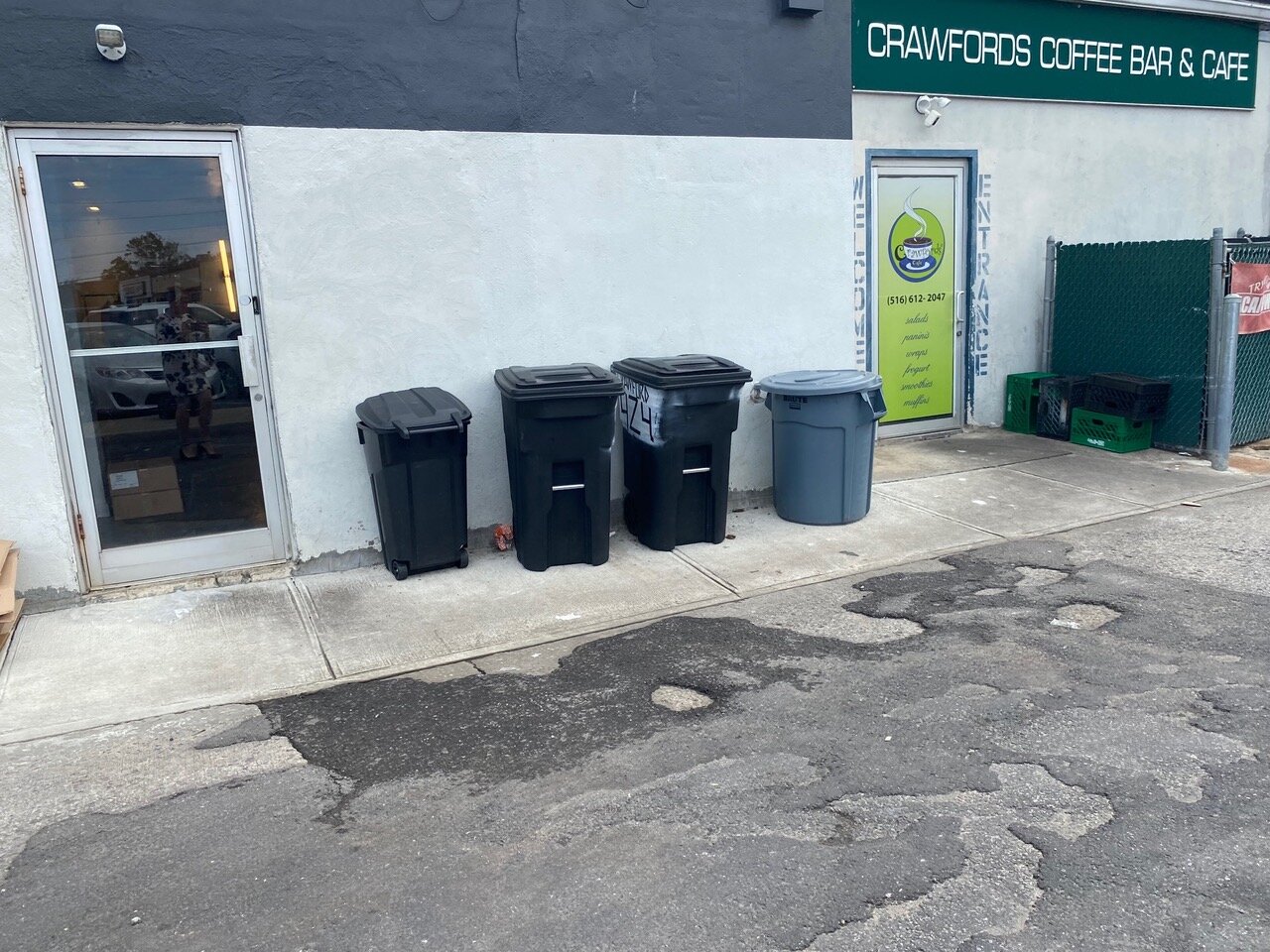The Village of Cedarhurst keeps their streets clean. Here's how
What was described as a rat infestation in Cedarhurst last year has become a less visible problem in recent months, thanks to the cooperation of business owners, specifically restaurant owners.
“Last year there was a whole infestation,” Miriam Sacks, the manager at Lolli Bop Café, on Central Avenue, said. “This summer was good. This year there’s a big difference. Compared to last year, there’s a huge difference.”
The difference can be credited to an approach Mayor Benjamin Weinstock and village trustees adopted based on discussions with restaurant owners on how best to put their trash out for pickup, after rats were seen near some of the restaurants where trash had not been adequately sealed before it was collected, Weinstock said.
“Not all of them, but some have not been very good at putting their garbage in sealed containers with closed lids,” the mayor said. “They tend to have all the garbage corralled and throw the garbage in plastic bags and leave them on the ground. That attracts all kinds of bugs, spiders, rats, mice.”
According to a law that dates back to the 1980s, Weinstock explained, businesses that do not seal trash properly are given a warning, and after that, violators can be ticketed up to $250.
“We’ve been enforcing it for a couple of years heavily,” he said. “We want to cut down on the infestation of any rodents, and try to keep that in check as best we can.”
Along with disgust factor of rat sightings, the rodents pose a genuine hazard to humans. They can spread disease, creating a public health risk. Rodent-borne diseases can be passed directly to people by bite wounds, or through the consumption of food or water or by breathing dust that has been contaminated by rat droppings. Rats are also infamous for chewing through wiring, furniture and walls. More often than not, the damage is done before the culprits are found.
There is no specific area where sightings have been concentrated, Weinstock said, but rats have been spotted where there are a “cluster” of restaurants in the village. “Some of them have been really careful in what they do,” he said of the businesses, “and some have not been. In the beginning, it was a hard thing to get them to be aware of what they were doing and what the issue was, but they’ve been getting better.”
One owner of a Central Avenue restaurant, who declined to be identified, defended his and other businesses, saying that the onus for solving the rat problem was not entirely on them.
“It doesn’t have to be a restaurant,” he said. “Let’s say you have an office, and you eat lunch, and don’t have one of those big bins because you don’t need that. You’re just putting out one bag a day.
“We went to the town and complained …,” the restaurant owner added. “We were the ones who did, because we have one of those bins that closes on top. Some people were leaving garbage, bags, on the floor.”
Cedarhurst’s trash and recyclables are picked up by the Town of Hempstead’s Sanitary District 1. Casey Sammons, a spokesman for the town, said he had not heard any recent reports of rat sightings.
“It’s on the business owners to make sure the sanitation is properly disposed,” Sammons said. “Once it starts affecting neighbors, that’s when it becomes an issue.”
Unrelated to the rat problem, the village purchased a garbage truck last year — the first one ever in its fleet of vehicles — to pick up trash at Andrew J. Parise Cedarhurst Park and to collect it from the village garbage cans around town. Due to delays with the manufacturing schedule, the $120,000 vehicle is expected to be delivered early next year.
Weinstock says the village picks up village garbage every day despite the fact that Sanitary District 1 doesn’t work on weekends, and also during Shabbat, calling themselves a “seven-day village.” The addition of the garbage truck, he said, would benefit workers who keep the village tidy.
“It’s not a full-sized garbage truck,” Weinstein explained. “The ones that the sanitation department uses are bigger. “The Sanitary District doesn’t pick up the litter baskets that we have on the street, and they don’t pick up the ones we keep in the park. We have to pick those up, and bring the garbage to Sanitary 1. We were doing that with dump trucks, but (that was) posing a danger for our men, because they could hurt their backs or they could hurt their legs when they picked (the baskets) up and dumped them into the dump trucks that we have.
“We pick those up every single day.”






